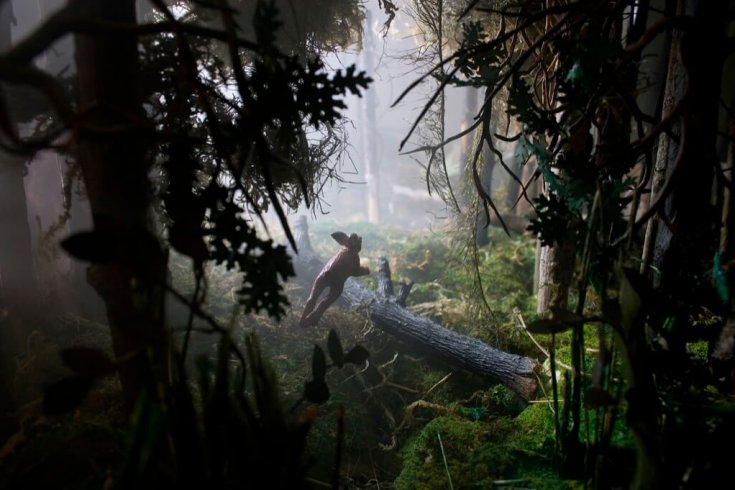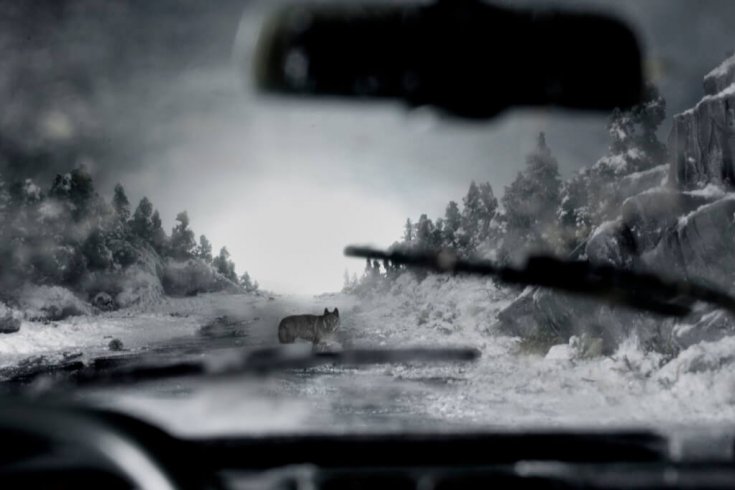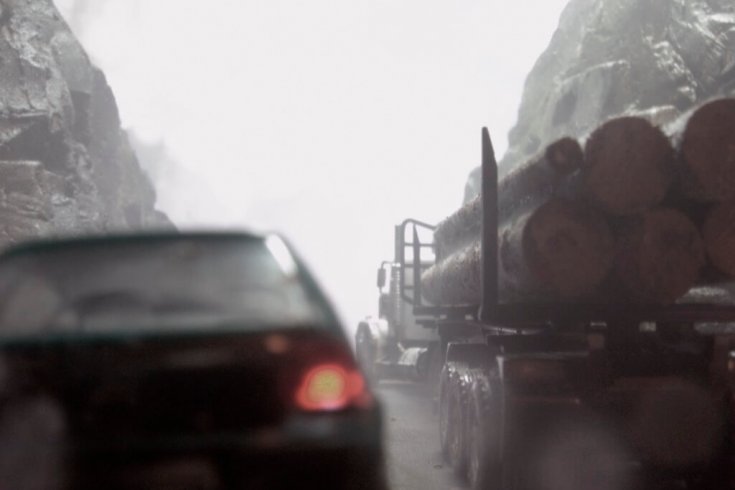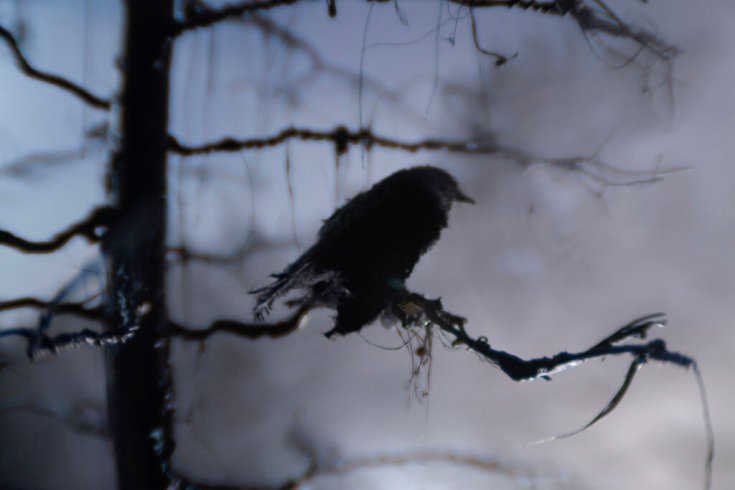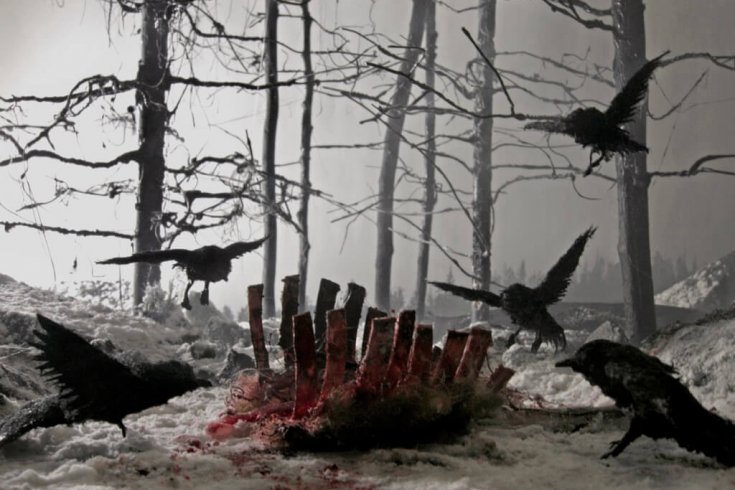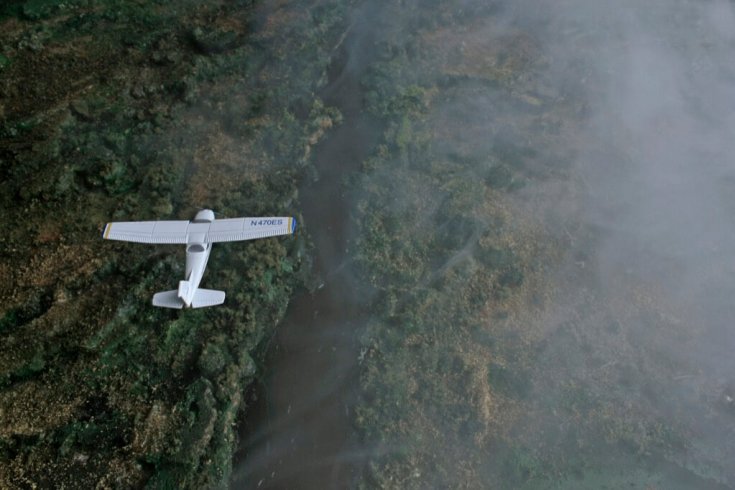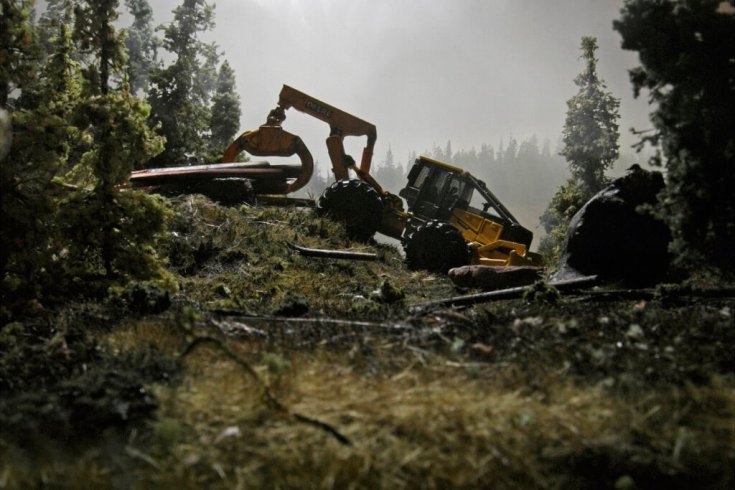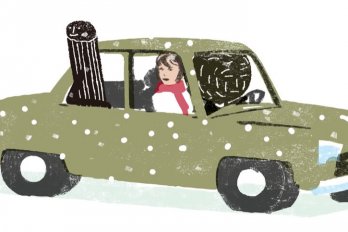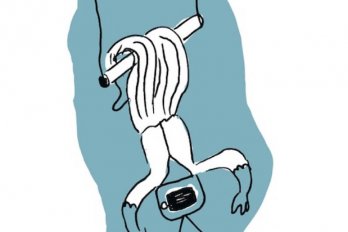The town of Atikokan has been floundering ever since the iron mines shut down in 1979 and 1980—a result of changes in the way steel is manufactured. I was not yet ten years old when I watched the blood red ore wash off the trees for good. Fortunately, since my father worked at the municipal pool and my mother at the high school library, my family was not immediately affected by the closures. But eventually, of course, everyone felt the loss as people began to move away. Only now do I realize how privileged I was to grow up there, with no limits placed on my exploration of the natural world, including the parts scarred by industry. My roots in Atikokan, my upbringing there, continue to shape who I am and what I do.
When we were young, we built crude log cabins in the woods. We all had our own axes by age ten and would head just outside town where stands of pine sprouted from a blanket of moss as far as the eye could see. We called this place Mossland—not a terribly inventive name, but it did the trick. I have no idea if Mossland still exists. When I tried to find it again this past summer, the woods proved impenetrable. Now I wonder how we got there as children. Mossland was like a dream even then, with its velvety soft ground cover, its deep freshwater pools, and its pathways lined with spearmint leaves. Light would filter through the thick pine boughs, making the moss glow a supernatural yellow-green. It had the feeling of a gloomy fairy-tale land.
Back in Atikokan’s heyday, you’d see skidders parked overnight in people’s backyards. Now you only ever see them rusting in the middle of clear-cuts off the highway. You experience a lot from the road when you live up north. By the time I was a teenager, I was cruising sections of the highway in my father’s truck just for something to do. It was partly the challenge of driving through black ice, sleet, rain, and snow. But I also got a thrill from the ominous trees, the towering rock cuts, and my encounters with deer, moose, and bears—some alive, some dead.
There are people who consider my photograph of ravens picking at carrion morbid, but one month after I created this piece I was on my way to spend Christmas with my parents, and I came across this exact scene just a few kilometres outside of town. There it was on the side of the road: ravens descending on the carcass of a moose. I took it as a sign; I was on the right track with my art. “Atikokan” is actually said to derive from the Ojibwa word for “caribou bones.” Woodland caribou once inhabited the area, but they more or less vanished over 200 years ago. I remember finding an old caribou bone in the woods across the street from my house once. I tried to imagine, in my child’s mind, what it would have been like when the forest was stocked with the mighty beast, as it is today with deer. Every time I visit, I see more of them. It seems like wildlife is proliferating as humans retreat.
The collapse of the local forestry industry in recent years has been a further blow to Atikokan. Now what are people going to do there? I tell my mother that a population sign at the edge of town still reads 3,500, which I know can’t be right. She believes the mayor is reluctant to advertise the real number, probably closer to 2,900, because he doesn’t want the town to seem smaller than it already is. I don’t blame him. I think there is a fear in the back of everyone’s minds, a fear shared by many small-town folk, that the place is turning into a ghost town.
When I was back home last winter, I decided to take a drive out to one of the old abandoned pit mines. The road was covered in deep snow, and I had to walk the last few kilometres. It was perfectly quiet except for the sound of my footsteps squeaking in the snow. I left my tracks alongside the animals’—wolf, deer, rabbit, fox, and moose had all been here, too. As I continued down the road, I got the eerie sense that something was watching me, and it wasn’t human. It was as if all the animals had been having a party and when I took to the road they all ran away and hid. I kept expecting one of them to leap out at me. It was that kind of feeling, but I continued onward.

